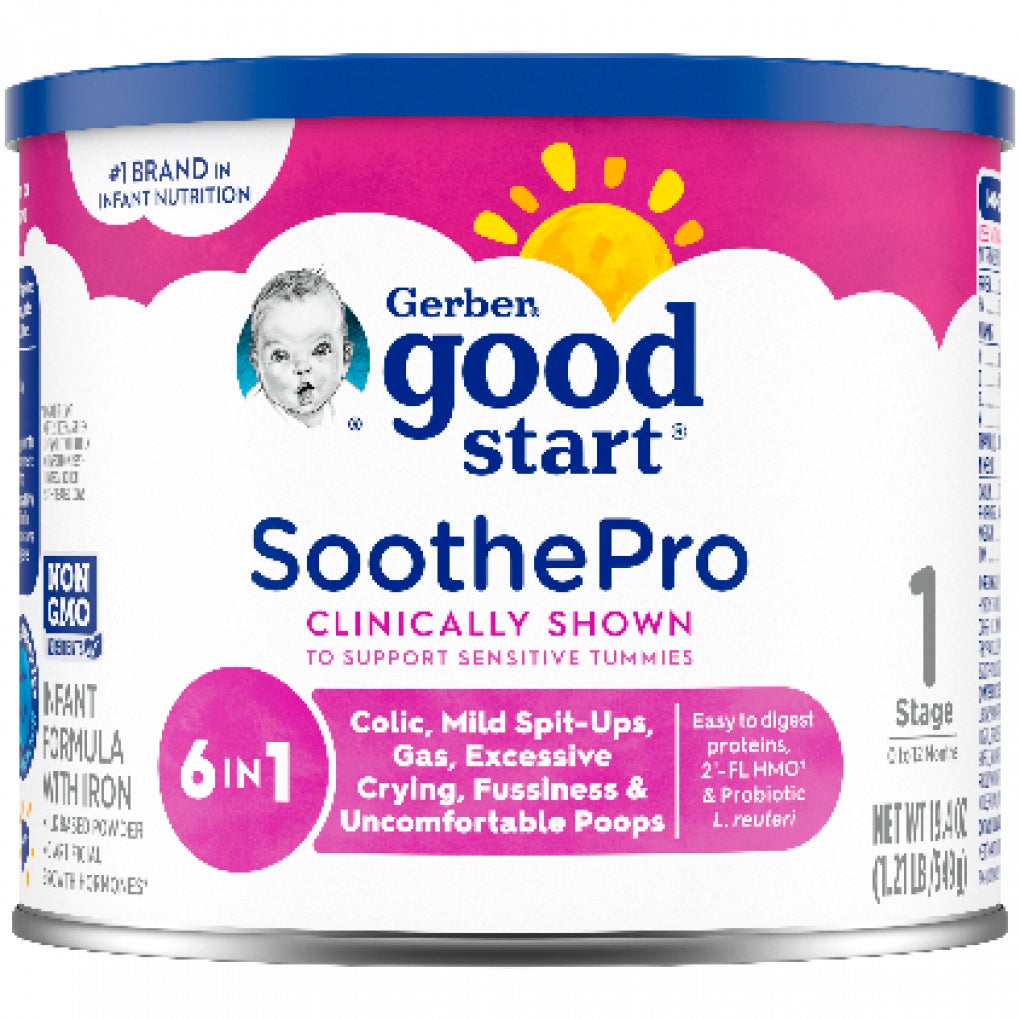Recalled Gerber baby formula was sent to US retailers after recall began, wholesaler says
A Gerber infant formula was recalled earlier this year over potential contamination of Cronobacter sakazakii, a bacteria that could cause life-threatening infections in infants

Your support helps us to tell the story
From reproductive rights to climate change to Big Tech, The Independent is on the ground when the story is developing. Whether it's investigating the financials of Elon Musk's pro-Trump PAC or producing our latest documentary, 'The A Word', which shines a light on the American women fighting for reproductive rights, we know how important it is to parse out the facts from the messaging.
At such a critical moment in US history, we need reporters on the ground. Your donation allows us to keep sending journalists to speak to both sides of the story.
The Independent is trusted by Americans across the entire political spectrum. And unlike many other quality news outlets, we choose not to lock Americans out of our reporting and analysis with paywalls. We believe quality journalism should be available to everyone, paid for by those who can afford it.
Your support makes all the difference.An infant formula recalled over potential bacteria contamination was distributed to retailers across eight states even after the recall begun, according to a release published by the U.S. Food and Drug Administration this week.
In March, Perrigo Co. issued a voluntary recall of certain lots of its Gerber Good Start SootheProTM Powdered Infant Formula “out of an abundance of caution” due to the possible presence of Cronobacter sakazakii, a germ that can cause serious or deadly infections in infants.
The recall impacted Gerber Good Start formula manufactured between Jan. 2 and Jan. 18 at the Perrigo’s Gateway Eau Claire, Wisconsin, facility. The recalled formula was sold in three different sizes at retailers nationwide, according to a March 17 recall notice.
Cooperative food wholesaler Associated Wholesale Grocers, however, distributed the 12.4-ounce verison of the recalled product to its Nashville Division retailers after Perrigo's initial recall notice was published.
As a result, the recalled product was distributed to supermarkets across Alabama, Georgia, Indiana, Kentucky, Ohio, Tenneessee, Virginia and West Virgina, Associated Wholesale Grocers said Saturday.
The wholesaler is urging consumers who purchased Gerber Good Start formula at impacted locations to check their products. The recalled formula sold beyond the start of the recall can be identified by its lot codes and “use by” dates — which range from July 4, 2024 to July 12, 2024.
“Any consumers who purchased product with matching codes should discontinue use and dispose of the product,” Associated Wholesale Grocers' Saturday notice reads, adding that consumers can request a refund by contacting the Gerber Parent Resource Center on behalf of Perrigo.
In a statement to The Associated Press on Tuesday, Perrigo said that the company informed all customers at the time of the March recall. The Saturday notice from Associated Wholesale Grocers, which Perrigo identifies as a customer, is “not directly associated with Perrigo and has no impact on the company,” Perrigo said.
The company also maintained that the March recall was initated “out of an abundance of caution” — adding that “no Cronobacter sakazakii bacteria has been found in any product distributed for sale and no adverse events have been reported.”
The Associated Press also reached out to Associated Wholesale Grocers for further comment Tuesday morning.
Infections caused by Cronobacter sakazakii are rare, but they can be life-threatening for newborns, the Centers for Disease Control and Prevention writes — noting that the bacteria can cause sepsis and meningitis.
Cronobacter sakazakii was same germ that sparked Abbott Nutrition’s recall and following nationwide shortage of powdered infant formula last year. According to the FDA and CDC, Cronobacter sakazkii is found naturally in the environment and is “particularly good” at surviving in dry foods like infant formula — which can get contaminated at home or in processing facilities.
The bacteria can also live on home surfaces and other feeding equipment. Experts stress the importance of taking everyday sanitation measures for safety.
“There are steps that people can take to prevent infections,” Dr. Julia Haston, a CDC expert in pediatric infectious diseases, previosuly told The Associated Press — including thoroughly washing, sanitizing and drying hands, equipment and all surfaces before feeding a baby.
_______
AP National Reporter JoNel Aleccia contributed to this report.